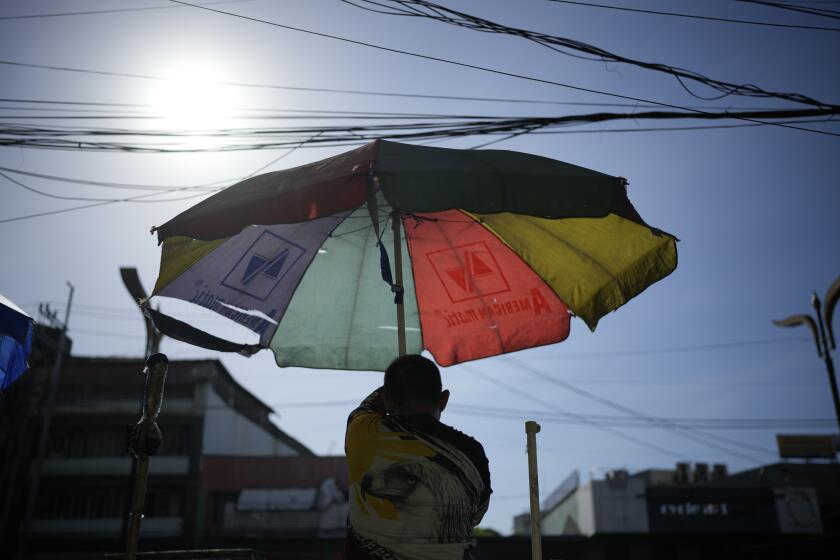Jordan Urges Revival of Reagan Mideast Plan
Almost a year after Jordan rejected a U.S. peace plan that had already been turned down by Israel, Jordanian Foreign Minister Taher Masri called on President Reagan on Monday to revive the long-dormant proposal as a basis for new Middle East diplomacy.
“I think we should go back to the Reagan initiative and remember what is in it,” Masri said. “We believe the Reagan initiative supports a lot of what we are doing now.”
Masri, here for meetings with Secretary of State George P. Shultz and other U.S. leaders, was referring to the Mideast proposal that Reagan made Sept. 1, 1982. The plan was rejected within a day by the Israeli government of then-Prime Minister Menachem Begin. Jordan’s King Hussein pondered the plan for months before pronouncing it unacceptable last April.
Reagan’s plan rejected an independent Palestinian state but called for self-government by the Palestinian residents of the West Bank of the Jordan River and the Gaza Strip, both now occupied by Israel, “in association” with Jordan.
Masri’s effort to rekindle U.S. interest in the proposal appeared to be a sign that Jordan and its Arab allies are becoming discouraged by the lack of success so far in their current efforts to enlist the United States as a mediator in their longstanding dispute with Israel.
Asked about Masri’s comments, State Department spokesman Edward P. Djerejian said the 30-month-old Reagan plan is “fair and equitable” to both Israel and its Arab neighbors and remains the basis of U.S. policy. However, he gave no hint that the Administration plans any new diplomatic push for the proposal.
Last month, Hussein and Chairman Yasser Arafat of the Palestine Liberation Organization agreed to seek a peaceful settlement with Israel. However, Masri said that agreement will mean nothing unless the United States agrees to meet with a joint Jordanian-Palestinian delegation to get the process moving.
Such a meeting has been proposed by Egyptian President Hosni Mubarak.
“If this doesn’t happen,” Masri said, “the agreement will be hurt a lot; Mr. Arafat will be hurt a lot; all of the moderates in the Arab countries will be hurt a lot.”
More to Read
Start your day right
Sign up for Essential California for news, features and recommendations from the L.A. Times and beyond in your inbox six days a week.
You may occasionally receive promotional content from the Los Angeles Times.






